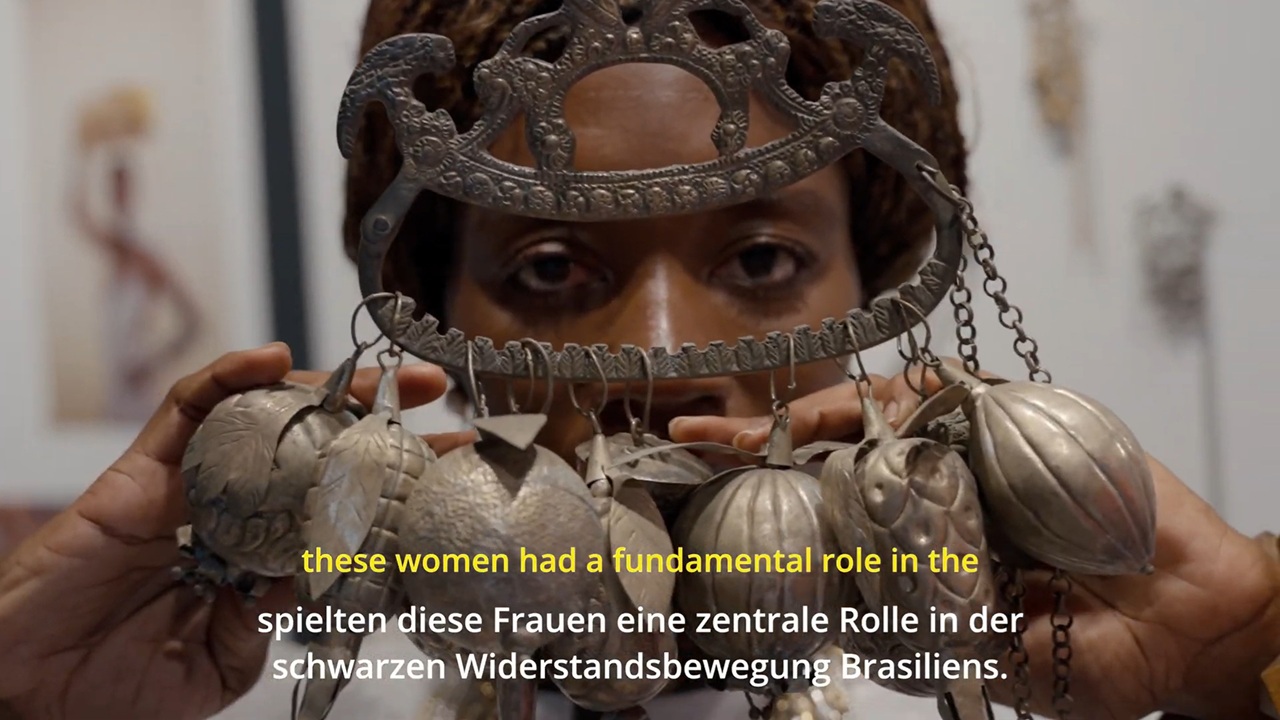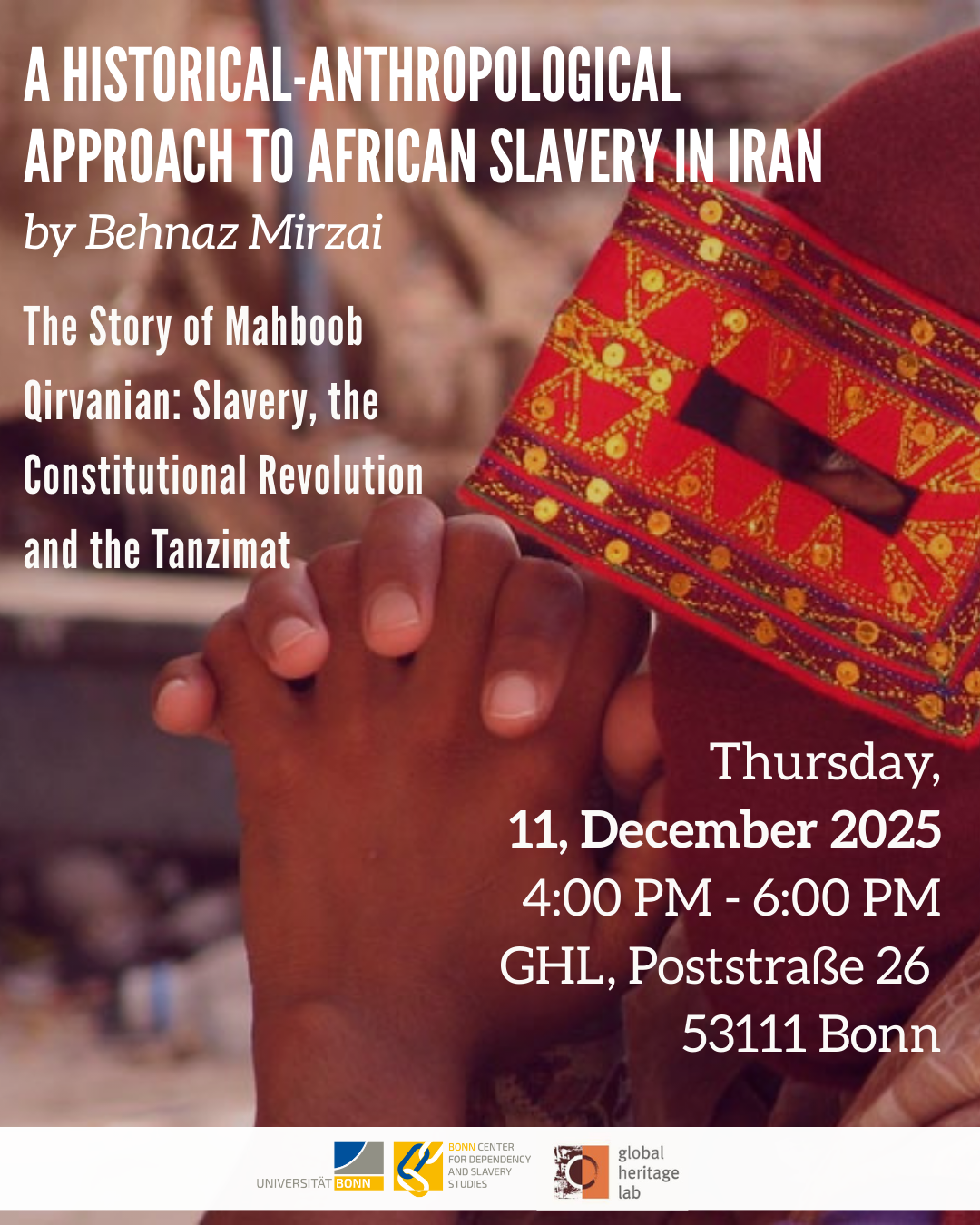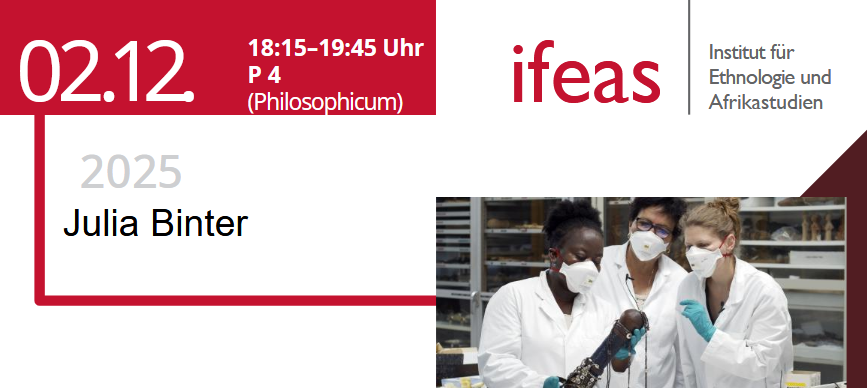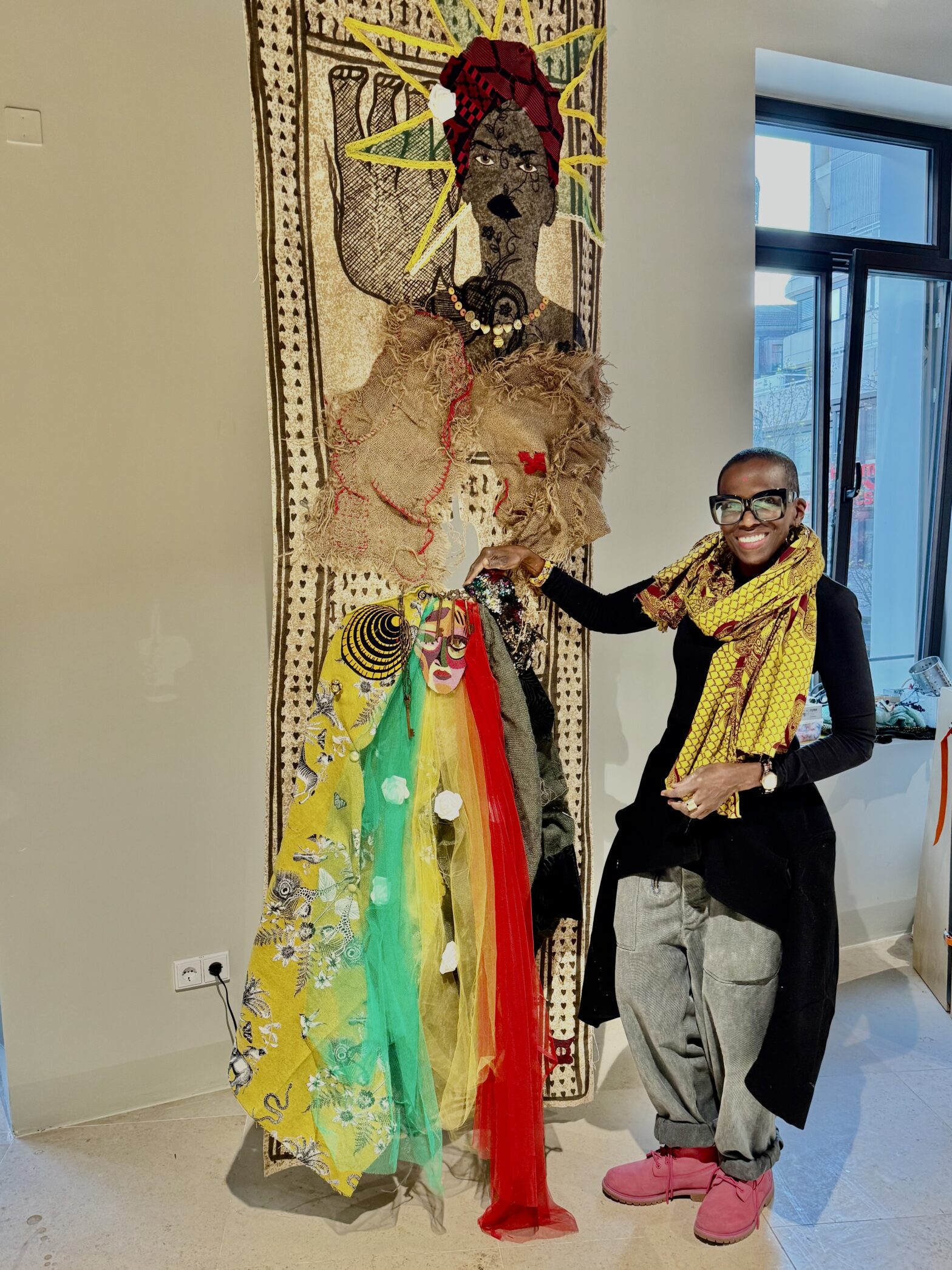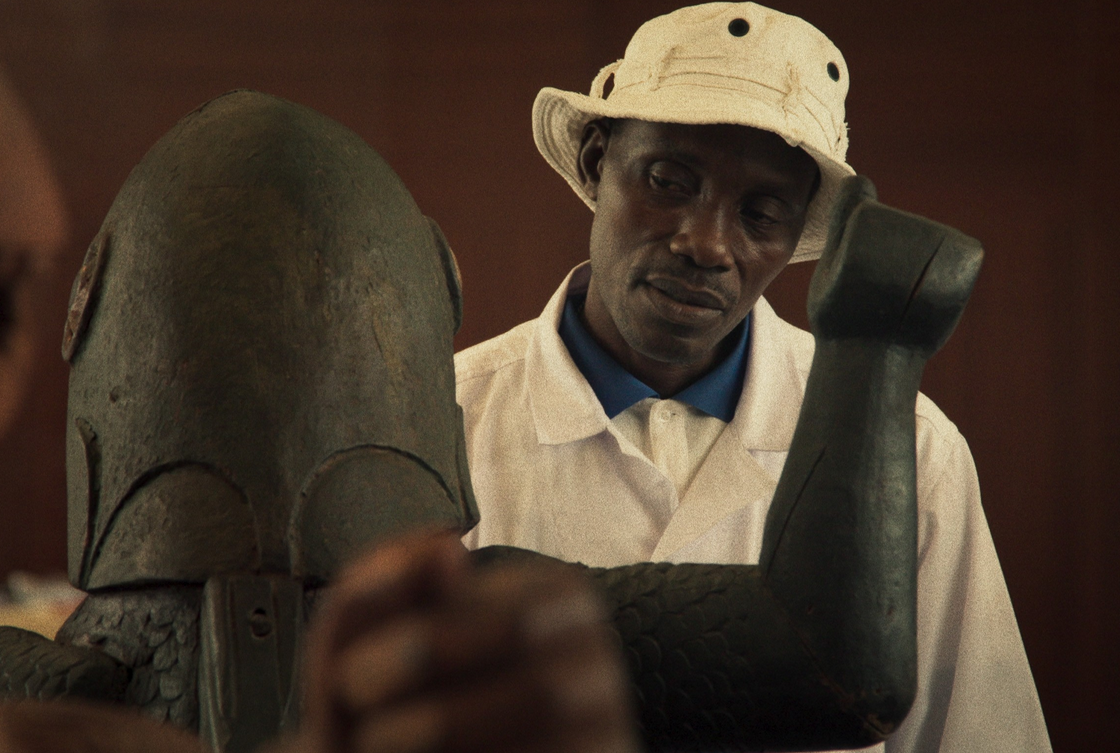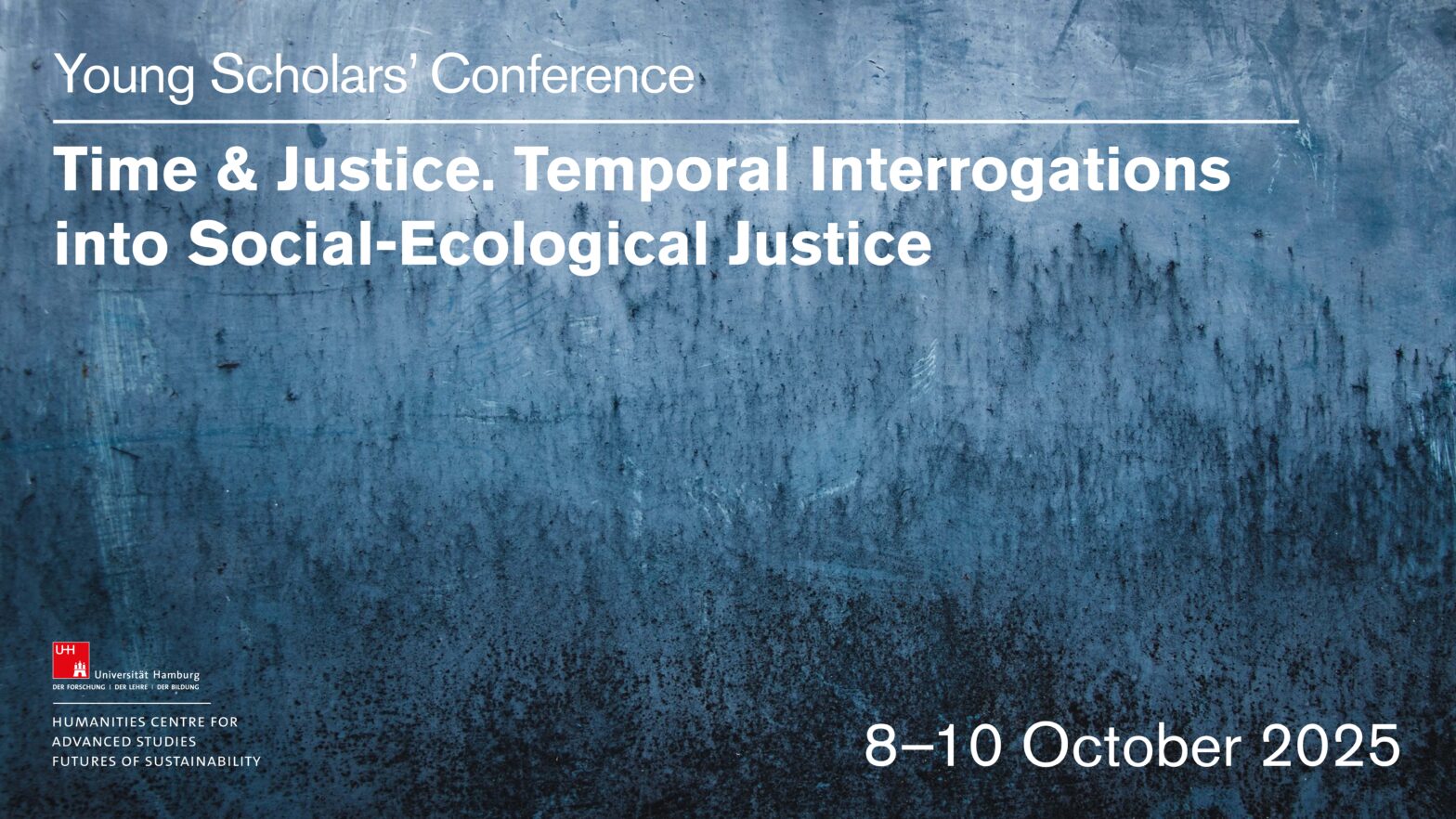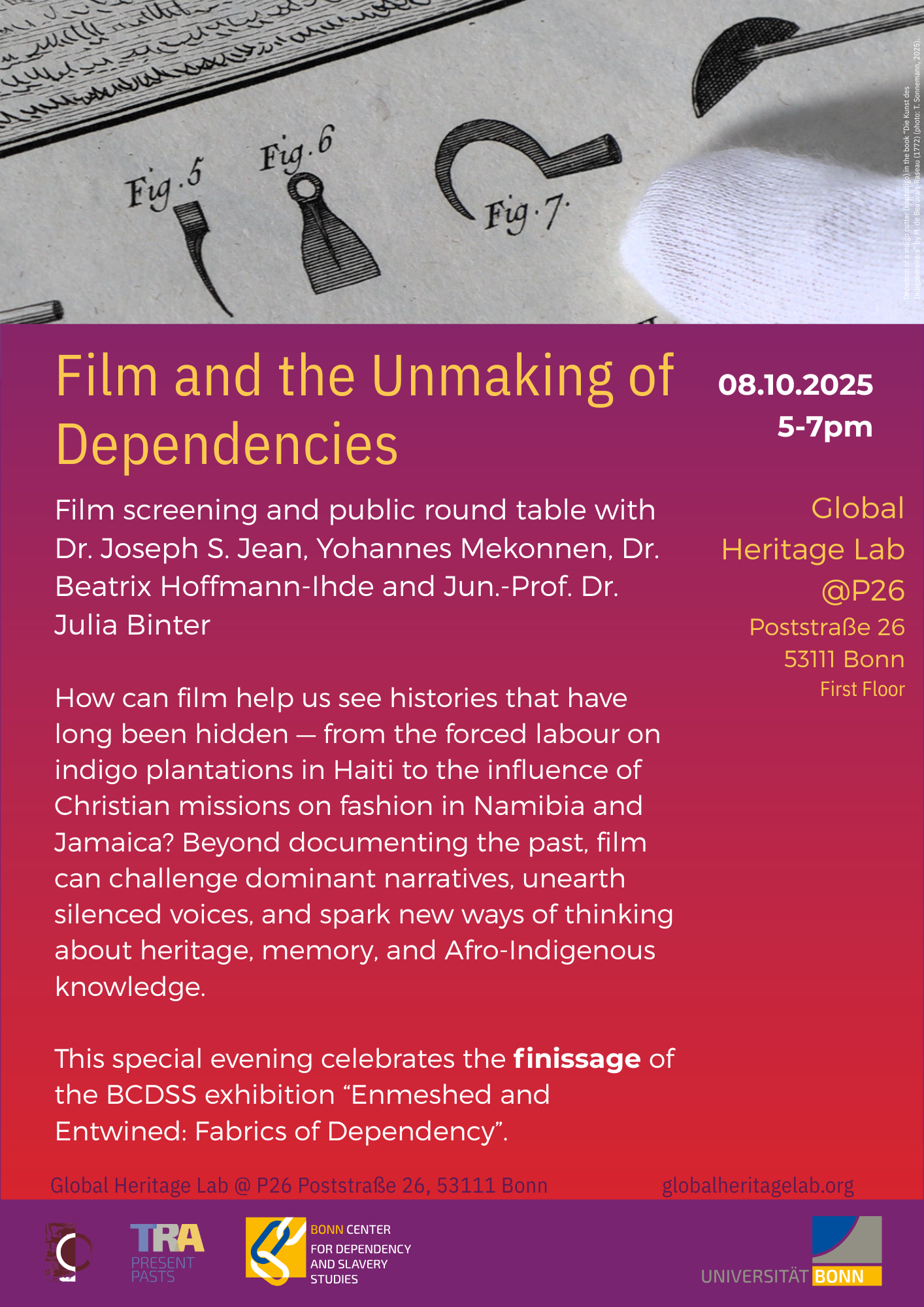What is the epistemological potential of bringing artists and scholars together to research fashion and its legacies of Christian mission? Jun.-Prof. Julia Binter discusses this question with regard to the project “Interwoven Dependencies. Redressing Fashion and the Heritage of Mission” at the conference “Räume öffnen. Missionssammlungen vermitteln mit künstlerischen Methoden” of the Katholische Hochschule in […]
News
Lecture and film by Behnaz Mirzai on African Slavery in Iran (11.12.25, 4-6pm)
The implicated researcher: Shifting positionalities in collaborative research and restitution projects How did the Iranian Constitutional Revolution and the Ottoman Tanzimat reforms reshape slavery across the Indian Ocean, Mediterranean, and Middle East?This talk by Behnaz Mirzai, Professor of Middle Eastern History at Brock University, examines the shared origins of Qajar Iran and the Ottoman Empire—neighboring […]
The Implicated Researcher: A Talk by Julia Binter at the ifeas in Mainz (02.12.25)
The implicated researcher: Shifting positionalities in collaborative research and restitution projects On 2 December 2025, Jun-Prof. Dr. Julia Binter will give a talk titled “The implicated researcher: Shifting positionalities in collaborative research and restitution projects.”Taking the collaborative research, exhibition and restitution project ‘Confronting Colonial Pasts, Envisioning Creative Futures’ on the collections from Namibia at the […]
Camouflage. Disguise as an Act of Resistance. Artist Talk with Cheryl McIntosh (28.11.2025)
Artist Talk with Cheryl McIntosh
At the center of this Artistic Talk is the portrait of “Nanny – Queen of the Maroons”. According to historical sources, Nanny was born in present-day Ghana, enslaved, and forcibly taken to Jamaica, where she became a leader of the Maroons—communities of formerly enslaved people who had liberated themselves. This participatory talk uses the idea of camouflage as a point of departure to explore artistic strategies for engaging with the past, considering dress as a form of resistance, and giving voice to marginalized people.
Film Screening – Cinéclub X Bonner Filmfair: Dahomey (19.11.2025)
Mati Diop’s award-winning documentary Dahomey explores the return of 26 royal artworks from the former Kingdom of Dahomey to their country of origin—present-day Benin. Looted during the colonial era and taken to France, these objects become the center of a film that reflects on self-determination, restitution, and the reimagining of cultural spaces. Awarded the Golden […]
Call for Papers: Time is of the essence: Temporal (in)justice, extractivisms, and dispossessions in the “green transition”
We are happy to invite you to submit your paper proposal to our Panel P102 at the 2026 Conference of the Political Ecology Network (Pollen): ‘Pollen2026: Diverse Origins, Multiple Futures: The Stories of Political Ecology’, which will take place in June 2026, Barcelona.
Geschichten weben: Kreativ schreiben in der Ausstellung
Entfalte am 25.10.2025 von 17 bis 18 Uhr deine kreative Schreibkraft bei „Geschichten Weben – Kreatives Schreiben in der Ausstellung“ und lass dich von “Widerstand bekleiden. Mode und das Erbe der Missionierung” inspirieren.
Presentation: Is There a Future Beyond Extractivism? Environmental Justice in Between the Conflictual Temporalities of Hyper-Extractivism and Post-Extractivism.
“Is There a Future Beyond Extractivism? Environmental Justice in Between the Conflictual Temporalities of Hyper-Extractivism and Post-Extractivism”
Presentation by Alejandro Mora Motta at the ‘Young Scholars’ Conference: Time & Justice. Temporal Interrogations into Social-Ecological Justice, 8–10 October 2025, Hamburg’
Film and the Unmaking of Dependencies
Film screening and public round table with Dr. Joseph S. Jean, Yohannes Mekonnen, Dr. Beatrix Hoffmann-Ihde and Jun.-Prof. Dr. Julia Binter
Catch Our Colleagues at DGSKA 2025 in Cologne!
How are needles, thread and textiles related to resistance?
In this film screening, which will be followed by an open space for dialogue, we will explore how textile crafts can be used as a form of political resistance.

